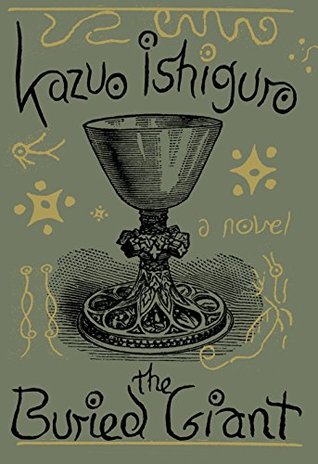You would have searched a long time for the sort of winding lane or tranquil meadow for which England later became celebrated. There were instead miles of desolated, uncultivated land; here and there rough-hewn paths over craggy hills or bleak moorland. Most of the roads left by the Romans would by then have become broken or overgrown, often fading into wilderness. Icy fogs hung over rivers and marshes, serving all too well the ogres that were then still native to this land…But such monsters were not cause for astonishment. People then would have regarded them as everyday hazards, and in those days there was so much more to worry about.
In the sixth century -- a time long after the Romans had abandoned their outpost of Brittania -- the native Britons and invading Saxons learned to coexist after a devastating war that resulted in peace under the rule of King Arthur. Following this war, boys grew to manhood knowing only this peace and the two peoples seem to have forgotten that they were ever enemies. As a matter of fact, people seemed to have been forgetting much -- from their own childhoods to the events of yesterday -- and this forgetfulness proves both boon and irritant.
At the edge of a bog, living in an undesirable outer chamber of an underground warren-like community, we meet an elderly couple, Axl and Beatrice. Alone and suffering indignities (children call them names and they must spend their evenings in the dark because the council has decided the couple is too old to be trusted with a candle), they suddenly remember that they have an adult son in another village and determine to go and visit him. And so begins the quest.
In this Britain of ogres, pixies, and knight-errants, it is soon revealed that the nation's memory loss can be blamed on the misty breath of the she-dragon Querig. In their wanderings, Axl and Beatrice meet: a Saxon warrior, Wistan, who is pledged to slay the dragon, and his protégé, Edwin; Sir Gawain, an elderly Knight of the Round Table, who is King Arthur's nephew and pledged to his own quest ; untrustworthy monks; and a Boatman who may or may not fulfill the ultimate desires of those who wish to cross to a mysterious island.
It's no spoiler to mention that the title of The Buried Giant refers to suppressed memories, and although the story reads on its surface as a quest journey in the tradition of The Princess Bride or Le Morte d'Arthur (with a character named "Beatrice" hinting that Dante's Inferno might also be relevant), this is also a deeper meditation on the collective amnesia that all nations must undertake to know peace. I'm put in mind of that one House M.D. episode where a woman has an absolutely perfect memory and her health problems are compounded by her daily inability to forgive her sister for a childhood betrayal. Whether we're talking about the memories of individuals or nations, isn't the passage of time and the softening of resentments a blessing? Who would willingly wake that sleeping giant?
As Axl and Beatrice struggle towards their son, brief flashes of memory make each of them uneasy. Although Beatrice believes that their current devotion to one another is proof that they can have nothing to fear from learning what happened throughout their marriage, Axl pleads:
Promise me this at least. Promise, princess, you'll not forget what you feel in your heart for me at this moment. For what good's a memory's returning from the mist if it's only to push away another? Will you promise me, princess? Promise to keep what you feel for me this moment always in your heart, no matter what you see once the mist's gone?And as they learn that Wistan's quest to slay the dragon is intended to remind the once-slaughtered Saxons of past injustice (When the hour’s too late for rescue, it’s still early enough for revenge), Axl's fears are for all of Britain:
Yet who knows what old hatreds will loosen across the land now? We must hope God yet finds a way to preserve the bonds between our peoples, yet custom and suspicion have always divided us. Who knows what will come when quick-tongued men make ancient grievances rhyme with fresh desire for land and conquest?We spend a lot of time here in Canada regretting the early treatment of the Natives that were met by the first European settlers, but every country on Earth has its own history of invasions, displacements, and subjugations; no nation could operate without official amnesia of these wrongs; whether ancient or more recent. It's a fascinating concept, but I'm not certain that Kazuo Ishiguro totally pulled it off in The Buried Giant: this is a very simple book and reads like a children's story; if Tolkien is a fair comparison, this is more The Hobbit than The Lord of the Rings. Although a departure from other Ishiguro books I've read (The Remains of the Day or Never Let Me Go), I was never bored with The Buried Giant, but I did wish it had a bit more heft.
And I must admit that the feeling of reading a children's book was made worse by the fact that I had a large print edition: when I first heard of this book, I went to put my name on an already long waiting list at the library until I noticed that there was no wait for large print. I'll stand behind my statement that it lacks heft -- The Buried Giant may be but a simple fable, but I honestly believe more could have been done with the theme.

